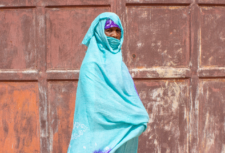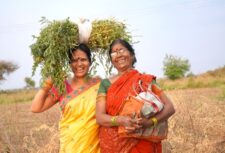Disclaimer: This article is more than 14 years old, and may not include the most up-to-date information or statistics. Please verify information with more recent sources as needed, and if you have any questions contact our Press Office.
24 August 2009
Child tobacco pickers in Malawi forced to work without protective clothing are being exposed to poisonous amounts of nicotine equivalent to smoking 50 cigarettes a day, says Plan International in a new report.
The children, some as young as 5 years old, work for 12 hours a day for as little as 11p. Many are suffering from Green Tobacco sickness, a type of nicotine poisoning caused by absorbing the drug directly through the skin.
“Sometimes it feels like you don’t have enough breath, you don’t have enough oxygen. You reach a point where you cannot breathe because of the pain in your chest. Then the blood comes and you vomit,” said one child interviewed in the report.
It is estimated that 78,000 children work on Malawi’s tobacco estates. Malawi is the fifth biggest producer of tobacco and 70% of its export income comes from tobacco.
Despite the profits made by the multinational companies that produce cigarettes, local tobacco farmers struggle to break even and routinely employ underage children to keep costs down. The children are exposed to hazardous and exploitative conditions, and many face physical and sexual abuse.
While Malawi has ratified ILO Conventions 138 on the minimum age of work and 182 on the worst forms of child labour it is estimated that nearly 90% of five to 14-year-olds work in the agricultural sector.
Joanna Ewart-James, Anti-Slavery International’s Supply Chain Co-ordinator said: “We are all well aware of the dangers of smoking but there are no warning labels about child labour and the poor conditions for workers producing and harvesting tobacco.
“The Malawian government needs to ensure that labour laws are enforced, all children are in education and tobacco companies must collaborate with farmers to work out how together they can end this shocking exploitation. There is no excuse, tobacco should be produced in conditions that guarantee the health and well-being of the workers.”





